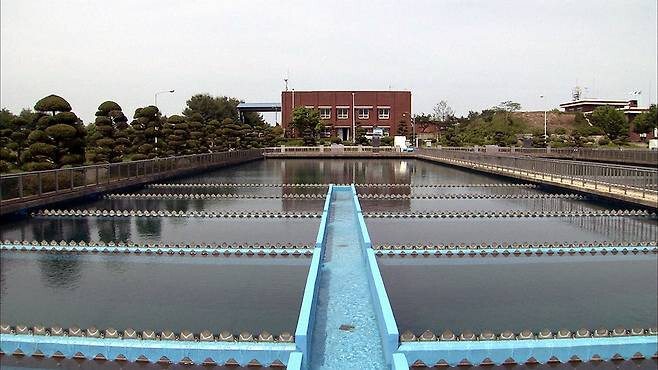
DAEJEON, SOUTH KOREA – The Daejeon Metropolitan City Waterworks Authority has announced a significant step forward in ensuring the safety and quality of its tap water supply by renewing and expanding its collaborative efforts for intelligent water quality management in the vital Daechung Reservoir system. The city has formalized a three-year extension of its agreement with key stakeholders, including Cheongju City (North Chungcheong Province), Gongju City (South Chungcheong Province), and the state-run Korea Water Resources Corporation (K-water). The renewed pact will remain in effect from April 4, 2025, until April 3, 2028.
At the heart of this enhanced collaboration is the joint implementation and utilization of a sophisticated Artificial Intelligence (AI)-based water quality prediction system. This cutting-edge technology will empower the partner organizations to proactively manage water quality within the Daechung Reservoir and mount a coordinated response in the event of any anomalies or potential threats to the water source.
The agreement outlines several key areas of cooperation:
Proactive Water Quality Management and Joint Response: The AI-driven prediction system will enable early detection of potential water quality issues within the Daechung Reservoir system. This foresight will allow the participating entities to implement preemptive measures, minimizing the risk of contamination and ensuring a swift, unified response should any abnormal water quality incidents occur. This collaborative approach is crucial for safeguarding the drinking water source for a significant portion of the central South Korean population.
Technological Advancement in Water Purification: The partnership will foster active technology exchange and knowledge sharing among the water purification plants in the Daechung basin. This collaboration aims to promote the adoption of the most advanced scientific methods and technologies for optimizing water treatment processes, ultimately leading to even higher standards of tap water quality for residents.
Real-time Integrated Monitoring Data Sharing: A key component of the agreement is the joint operation of a real-time integrated monitoring data sharing system for both water intake points and purification plants. This centralized system will provide all participating organizations with a comprehensive and up-to-the-minute overview of water quality parameters across the entire Daechung system. This enhanced information sharing will facilitate quicker decision-making and more effective management strategies.
The Daechung Dam and its associated reservoir system serve as a critical water source for several major urban centers in South Korea. This proactive inter-city and public-private partnership underscores the commitment of these organizations to leveraging technological innovation to ensure the long-term safety and reliability of the region's drinking water supply. The implementation of AI-powered predictive analytics represents a significant advancement in water resource management, moving beyond reactive measures to a more anticipatory and preventative approach.
This initiative is expected to serve as a model for other regions in South Korea facing similar water resource management challenges, highlighting the benefits of inter-agency collaboration and the strategic application of advanced technologies like artificial intelligence in safeguarding vital public resources. The extended agreement signifies a continued commitment to providing clean and safe water to the communities reliant on the Daechung Reservoir system.
[Copyright (c) Global Economic Times. All Rights Reserved.]






























